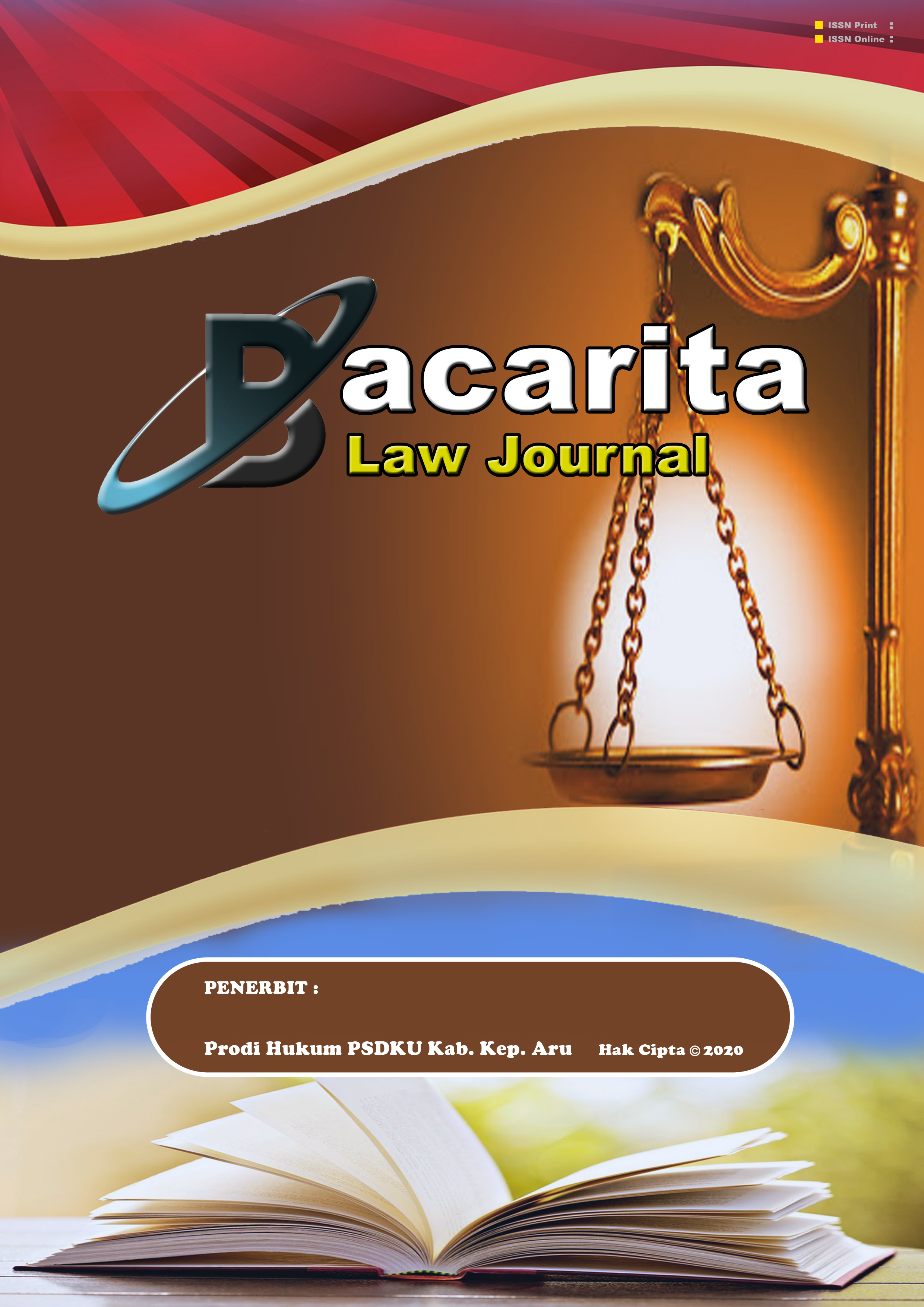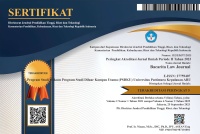Eksekusi Jaminan Oleh Debt Collector Sebagai Akibat Wanprestasi Dalam Perjanjian Fidusia
Abstract
Debt is something that is common in today's society. The level of income that is not proportional to the level of need is the reason why someone has to go into debt. Among the existing debt facilities, fiduciary is one of the most popular institutions in the community. But fiduciary itself is not without a problem. There are often forced withdrawals made by debt collectors who do not hesitate to use violence both physically and verbally on debtors who are in arrears in paying their installments. The research method used is normative juridical or what is known as legal research which is carried out by reviewing and analyzing the substance of legislation on the subject matter or legal issue in its consistency with existing legal principles. The result of the research is that finance companies are allowed to use the services of a third party by entering into a cooperation agreement that is contained in a stamped written agreement. The third party who collects is a legal entity that has permission from the competent authority and human resources who already have a professional certificate in the field of billing from an institution appointed by the association of Indonesian finance companies. In carrying out their duties as the party executing the fiduciary guarantee, the debt collector must meet several conditions. debt collectors are required to bring a number of documents such as identity cards, letters of assignment from finance companies, proof of debtor default documents, copies of fiduciary guarantee certificates. In addition, collection officers are required to bring a professional certificate in the field of billing from a professional certification agency in the field of financing registered with the Financial Services Authority.
Downloads
Copyright (c) 2021 Ronald Fadly Sopamena

This work is licensed under a Creative Commons Attribution-NonCommercial 4.0 International License.
Authors who publish their manuscripts in this Journal agree to the following conditions:
- The copyright in each article belongs to the author, as well as the right to patent.
- Authors are able to enter into separate, additional contractual arrangements for the non-exclusive distribution of the journal's published version of the work (e.g., post it to an institutional repository or publish it in a book), with an acknowledgment of its initial publication in this journal.
- Authors are permitted and encouraged to post their work online (e.g., in institutional repositories or on their website) prior to and during the submission process, as it can lead to productive exchanges, as well as earlier and greater citation of published work.
- Authors have the right to self-archiving of the article (Author Self-Archiving Policy)















